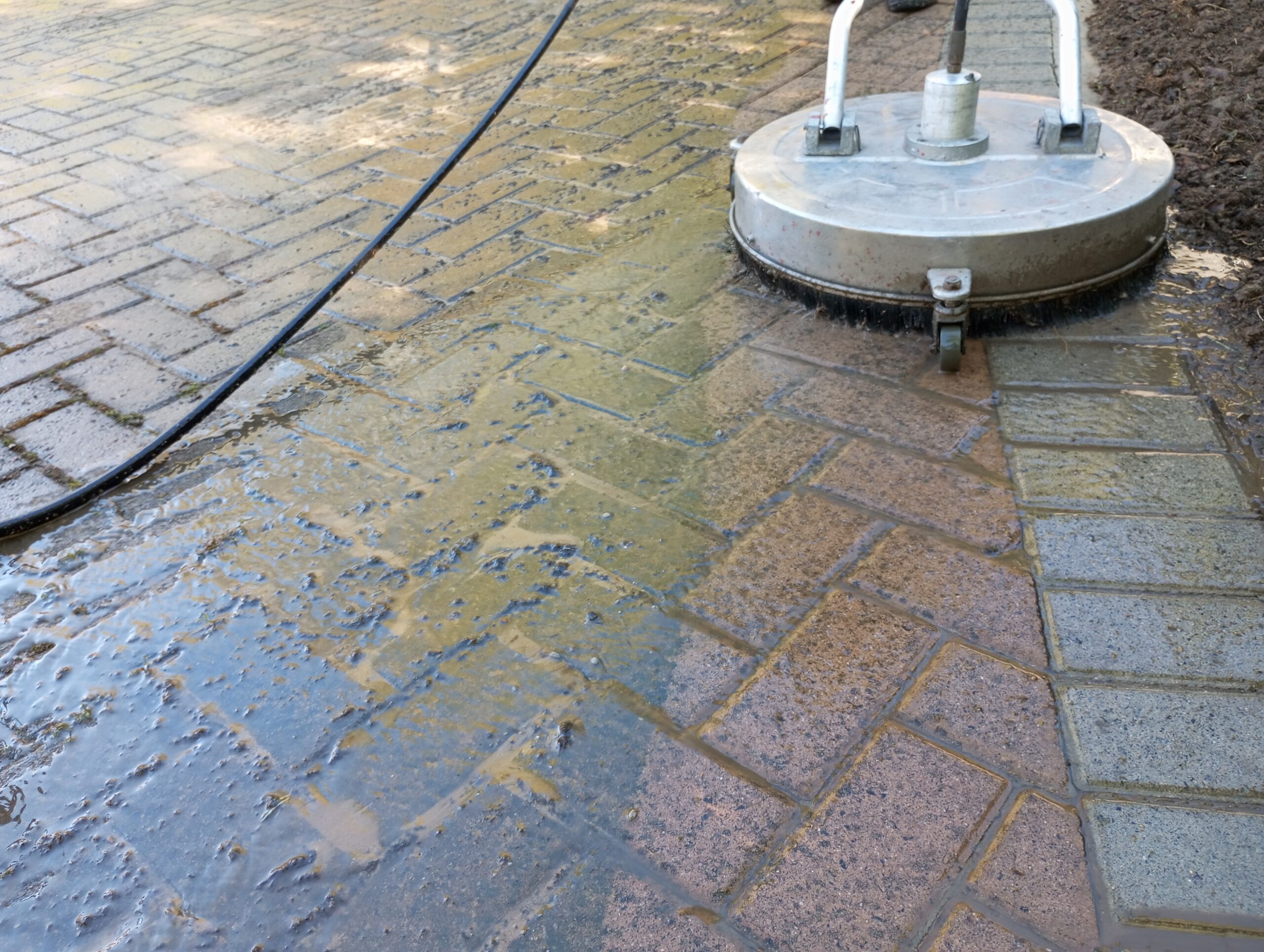If you’re looking to clean your concrete surfaces effectively, a pressure washer is your best friend. Whether it’s driveways, sidewalks, or patios that have seen better days, you can either rent or buy a power washer and do the job yourself or hire a professional with commercial-grade equipment. Here are some crucial tips and considerations for pressure washing concrete:
Tips for Pressure Washing Concrete
1. Plan Adequate Time
- Allocate at least 2-4 hours for your concrete cleaning project to ensure thorough results.
2. Dress Appropriately
- Wear long pants, sturdy shoes, and consider using gloves and safety glasses for protection.
3. Pre-Treatment
- Apply a degreaser or concrete cleaner to the surface before using the power washer for enhanced cleaning.
4. Start High, Work Down
- Begin cleaning at the highest point and work your way down to ensure consistent results.
5. Maintain Safe Distance
- Keep the nozzle about 12 inches away from the surface to prevent any potential damage.
6. Use a Sweeping Motion
- Adopt a steady, sweeping motion as you move back and forth across the concrete for effective cleaning.
7. Consider Sealing
- After the concrete has dried completely, think about applying a sealer for added protection.
Remember, not all concrete surfaces are the same. Older or stained concrete may react differently to the pressure washer, so it’s wise to test in a less visible spot before tackling the entire area.

Choosing the Right Pressure Washer
When it comes to selecting the best pressure washer for your concrete cleaning needs, you have several options to consider:
1. Size and Type
- Choose between small, light-duty units that attach to a garden hose or larger, commercial-grade machines.
2. Pressure Level (PSI)
- For effective concrete cleaning, aim for a power washer with at least 3000 psi.
3. Flow Rate
- Ensure a flow rate of at least 4 gallons per minute (gpm) for efficient cleaning.
4. Nozzle Type
- Consider using a rotary nozzle for faster cleaning compared to standard fan nozzles.
5. Wheel-Mounted Cleaners
- For large flat surfaces, wheel-mounted power washers resembling lawnmowers can increase productivity.
6. Hot vs. Cold Water Machines
- Cold-water power washers are more cost-effective and suitable for dirt removal, while hot-water units excel at cleaning oil and grease stains.

Disposal Requirements
Depending on the chemicals used and the contaminants removed during the cleaning process, local regulations may have specific requirements for water runoff disposal. Be sure to check with your local Environmental Protection Agency office to understand the disposal regulations in your area.
Preventing Equipment Breakdowns
Proper maintenance is essential to avoid costly repairs on your pressure washer:
1. Never Run Dry
- Never run the pressure washer without water, as it can lead to premature failure of pump seals.
2. Avoid Extended Bypass
- Don’t run the power washer in bypass (with the trigger not depressed) for more than a few minutes, as it can overheat the unit and damage the pump.
3. Sufficient Water Supply
- Ensure that your water source provides the necessary volume to avoid pump damage caused by air suction.
By following these tips and guidelines, you can achieve outstanding results when pressure washing your concrete surfaces while prolonging the life of your equipment.
Whether you choose to go the DIY route or hire a professional, a clean and rejuvenated concrete space awaits!

